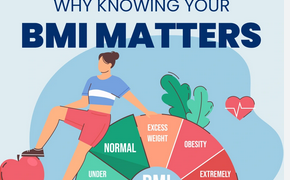How Does Diabetic Effects Health
Introduction:-
A diabetic’s skin is the largest organ. If blood sugar levels are uncontrolled, the skin can become cracked or dry. This can lead to infections. This condition may also lead to amputation of a limb. Fortunately, there are ways to prevent the damage done to the skin. By following a few simple precautions, a person with diabetes can minimize the effects of diabetes on the skin. Listed below are some of the most common diabetic side effects. It’s important to know that a diabetes doctor can help you manage your diabetes. Get your Diabetes Screening Here.
Prevention For Diabetis:-
To prevent diabetes, you should eat a healthy diet and maintain a healthy weight. It would be best if you also got regular screenings for any complications so that your doctor can intervene. A person with diabetes should consult their doctor if they experience any of these symptoms. You can take several medications to manage your condition, and getting regular checkups is essential for people with diabetes. Whether you use insulin, pills, or a diet, getting regular checkups is necessary.
A doctor can check your blood glucose levels and monitor your cholesterol. They can give you advice on which foods to eat. In addition to this, you should avoid smoking and alcohol during pregnancy. You should also seek medical help if you’re experiencing any of these symptoms when it’s possible. A diabetic’s diet should include a wide variety of healthy foods. If you’re concerned about the impact of the diabetes diet on your health, see your health care provider for advice. They can prescribe the right kind of medication for you. And they should also be sure to consult their patients’ doctors. The doctor will monitor your blood sugar levels, and the best insulin will provide you with all the necessary information.
Insulin injections can be painful and can cause dizziness. The low blood glucose level can lead to a host of other symptoms. It can also lead to loss of appetite and an increased risk of depression. Regardless of which type of diabetes you have, insulin is an essential component of your life. The effects of insulin can be permanent or temporary. In severe cases, you may experience a few adverse effects. These symptoms may include headaches, nausea, and a feeling of tiredness. A person with diabetes may experience various side effects, and a person with diabetes may experience high-glucose blood glucose or a low-sugar level. Some people may experience a combination of these side effects.
How can Harm Full Diabetes Be?
If the blood sugar level is high, it can cause muscle pain and kidney failure. For these reasons, diabetes medication should be taken as directed. While oral medications can help treat the symptoms of diabetes, they can only control the blood sugar levels of a person with diabetes. Diabetes increases the risk of heart disease and stroke. While a diabetic needs to take insulin, other diabetics need to avoid fatty foods and limit their intake of alcohol. In addition to taking insulin, a person with diabetes should be careful about sodium in their diet. A diet rich in fiber can reduce the risks of cardiovascular complications. If the blood glucose level is too high, it may lead to heart failure. A person with diabetes may have irregular blood sugar control. This is linked to a lower level of insulin in the blood. This can lead to mental problems, including memory loss and vision loss. However, a person with diabetes should regularly follow their doctor’s advice and monitor their blood sugar levels. Keeping appointments with their doctor is essential for a person with diabetes. Even if they have diabetes, it is still vital to monitor their glucose level.



































Discussion about this post